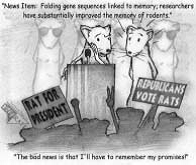Food Sovereignty
Submitted by ETC Staff on
In a period framed by the World Food Summit of 1996 and the Summit's rescheduled review in 2002, ETC Group looks back at the same span of years one century earlier as history lesson and as portent. These years (1896-1902) marked an era of devastating global famine when no less than 30 million people died in circumstances strikingly similar to those we face today-trade liberalization (i.e., "globalization"), climatic change, (corporate) colonialism, and a set of new technologies promising, once again, to feed the hungry.


